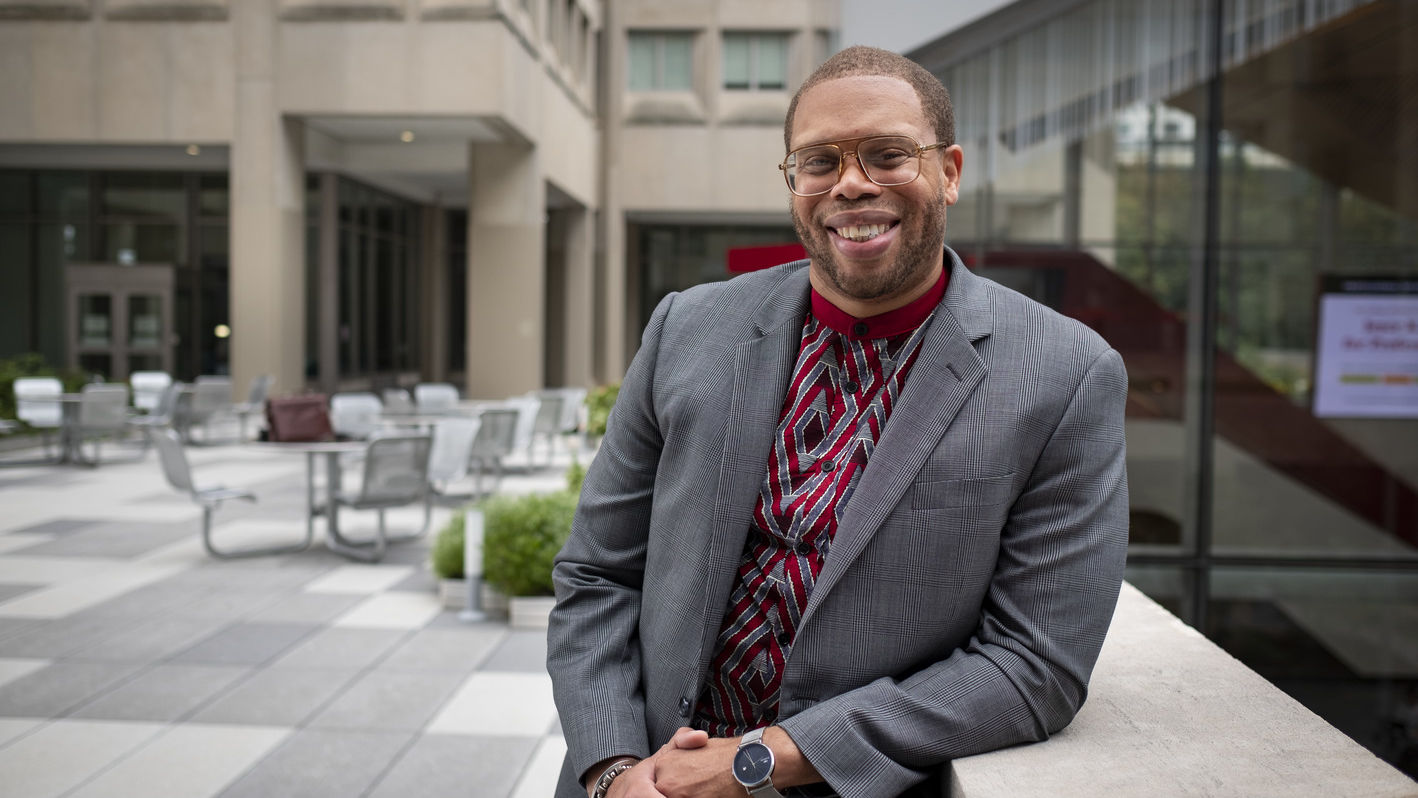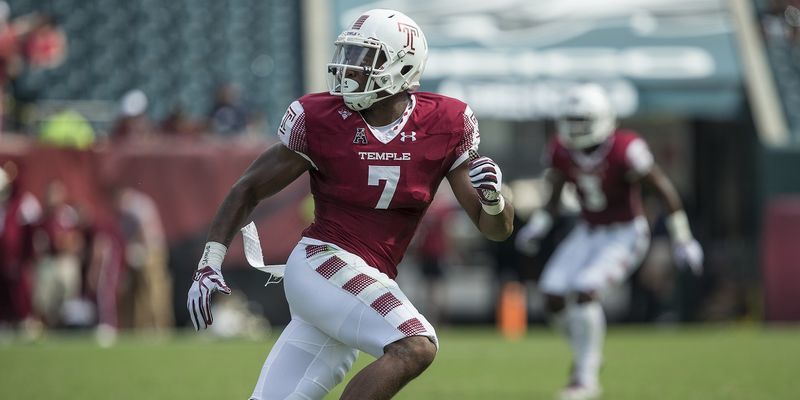The first Black starting quarterbacks to face off in the Super Bowl. Why is it significant?
Timothy Welbeck, an assistant professor in the Department of Africology and African American Studies, explains the significance of Patrick Mahomes and Jalen Hurts making history as the first two Black starting quarterbacks to face off in the Super Bowl.

It took 57 years to get to this point, but it’s finally here: This Sunday, Feb. 12, two Black starting quarterbacks will face off in the Super Bowl for the first time.
Philadelphia Eagles quarterback Jalen Hurts punched his ticket to the big game with a 31-7 victory over the San Francisco 49ers on a Sunday afternoon in Philadelphia. Four hours later, Patrick Mahomes joined him after a dramatic 23-20 win over the Cincinnati Bengals. Coincidentally, both quarterbacks were announced as finalists for the NFL Most Valuable Player award this year, as well.
It is reminiscent of when Lovie Smith and Tony Dungy became the first Black head coaches to make it to the Super Bowl 16 years ago.
It’s also another historic achievement to celebrate progress in this country, said Timothy Welbeck, an assistant professor in the Department of Africology and African American Studies at Temple University’s College of Liberal Arts.
“Historically, playing quarterback was a position assumed to be outside the capabilities of a Black player. There was an underlying presumption that Black quarterbacks could not adequately lead a team because the requirements were too cerebral and did not necessarily rely wholly on athletic ability. Like having the intellect to study film and memorize all the information from the offensive playbook to quickly read the defense correctly and make good decisions throughout games,” Welbeck explained.
“Many Blacks never got opportunities to be quarterbacks if they demonstrated athletic ability. They were encouraged to pursue other positions like running back, wide receiver or cornerback. So it is significant that two Black starting quarterbacks will face off in the Super Bowl for the first time, but the history is even greater.”
A total of seven Black starting quarterbacks have played in the Super Bowl. Doug Williams became the first Black quarterback to start and win a Super Bowl in 1988. In different years, Steve McNair, Donovan McNabb, Colin Kaepernick and Cam Newton have started in the Super Bowl but lost.
Hurts is striving to become just the fourth Black quarterback to win the Lombardi Trophy, joining Williams, Russell Wilson and Mahomes. Mahomes can become the first Black quarterback in NFL history to win multiple Super Bowls if he leads the Kansas City Chiefs to a Super Bowl LVII win this Sunday in Arizona.
Despite his recent success, it has not always been smooth sailing for Hurts, Welbeck said. The Eagles’ decision to draft him in the second round of the 2020 draft was widely criticized by reporters and fans because Carson Wentz was entrenched as the starting quarterback at the time.
“Hurts had to prove himself at every juncture of his career. People have questioned his ability to be an NFL starting quarterback. Until he made the undeniable case this season,” Welbeck said. “However, despite his success, people were saying the Eagles would do just as well this year if you put another quarterback in his place. Even before Hurts was drafted, the media asked if he would switch to another position in the NFL. It’s another means to diminish his contributions and abilities.”
Welbeck explained that quarterbacks as a whole are arguably the most heavily scrutinized position in sports. But that is taken to a whole other level for Black quarterbacks, who often have had to overcome more barriers and deal with more criticisms and stereotypes than white signal-callers.
“At the NFL scouting combine, Lamar Jackson refused to run the 40-yard dash because a scout asked him to work out as a wide receiver despite playing quarterback his entire life. As a Black quarterback, much attention is on his athletic ability to make big plays with his legs rather than his arm ability to throw accurately and lead a team,” Welbeck said.
“People did not think about Tom Brady playing another position or worry about his 40-time. In comparison, Black quarterbacks are not given the same courtesy,” he added.
Just as when Michael Vick became the first Black quarterback selected No. 1 overall in the NFL draft or when Steve McNair became the first Black quarterback to win MVP or when Warren Moon as an undrafted player became the first (and only) Black quarterback elected to the Pro Football Hall of Fame, Mahomes’ and Hurts’ appearance in the Super Bowl represents the next major step for Black athletes at that position.
And just like Vick, McNair, Moon and countless others before them, both Mahomes and Hurts have had to overcome stereotypes to get to this point.
“You can make a case that Black quarterbacks like McNabb and Randall Cunningham should be in the Hall of Fame. With Moon being the only one, it shows there have not been enough Black quarterbacks. Many have not been given the same opportunity in longevity to accumulate a Hall of Fame-level career. But this new wave of successful Black QBs like Mahomes, Hurts and others could add to that number,” Welbeck said.
“Barriers are still there, but they’re not as profound as they were a generation before. Young players of color growing up can look to a host of examples like Mahomes and Hurts playing in this year’s Super Bowl and be inspired to play quarterback. Black quarterbacks have proven that they can lead an NFL organization to success and flourish on the biggest stage in sports when given the opportunity. It is something that the nation can finally celebrate.”


